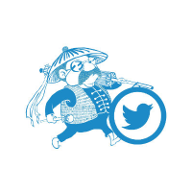









28 June 2017 by Suyen Hu
Children told us they love to know about Chinese food so we planned to share the story of the Chinese Farmers’ Calendar with them so they could get a better idea about life in the East and of course what people eat and how they celebrate Chinese New Year with plenty of food after a hardworking year.

The story is based on a little boy who misses his grandfather very much and found his grandfather’s diary on an old chair. He reads and reads the notes, and all the memories come up. The notes are not finished and his grandfather has passed away. The boy decides to carry on writing down the notes in his grandfather’s diary so he follows the grandfather’s steps and becomes a good farmer to work in the rice fields.
I thought the story is touching, because we still have some young farmers who follow their parents’ footprints only for the love of the family and the land. But when I asked children about their ideas of farming in the UK, they told me, ‘Oh! it’s a hard life. They have to work in hot weather in summer and get dirty. One girl described how her grandfather worked on an animal farm and it’s really not easy. I asked them if any of them would want to be a farmer because they can stay close with nature and their families if their parents are farmers. All of them said no without hesitation. I’m not sure if some of them will change their answer when they grow up if the world will pay more respect to farmers in future? It’s another topic to discuss further, but not for this one hour session.
After watching the video of the book about a Chinese farmer’s life, they started to play with the food models and write down their own notes about what people usually have for the New Year. The food models we brought from Taiwan as we thought it would be more interesting to look at real things rather than learning from the pictures or videos.
Children really love these food models! They not only asked us about the names for each dish, but also tried to imagine how to make dishes like those! One child said to me: ‘Can you show us real food and tell us how to make those dishes?’ ‘No,’ I said, ‘I’m not a good cook, I can’t make them. That’s why I brought models to show you.’
Another child said, ‘What?! You can’t cook? I think it’s very simple. Like this one (she took the meat ball dish) you only need to put the meat balls into the oven or fry them in a pot and then choose a right sauce for it.’ That was a lovely comment, but what is ‘right sauce’?
Then some children figured out we have so many different ‘rice dumplings’ with the same name translation in English. We call the thing we eat for Dragon Boat Festival ‘Rice Dumpling’ which is called Zong Zi and made with rice, meat and egg etc and wrapped with leaves.
We also have ‘rice dumpling’ for ‘Midwinter’s Day’. But the rice dumpling here is usually called Tang Yuan (balls soup) a sweet soup with round balls which are made of rice. Sometimes inside the rice balls there are some sweet fillings like red beans, sesames or peanuts.

Another popular Chinese food Shui Jiao is also called ‘dumpling’ but it has nothing to do with rice. The wrapper is made of wheat powder and the fillings are minced meat and vegetable. Some Chinese families love to have this kind of dumplings instead of rice as wheat is the main crop in north China and rice is mainly for south.
When we tried to answer children’s questions about these complicated and totally different kinds of ‘dumplings’ we realized that cultural misunderstanding possibly would start from the food from East to West with no mention about any other small things in our daily life like clothes, the way to travel and entertainments. The meaning of a good translation is not only to make people see the basic meaning of a new thing, but also to provide a glimpse of a new culture for people to think and to explore the deeper meaning of each item, and to discover the real meaning of each item for each culture and its people.

We eat rice and many different kinds of food made of rice, not because we grow rice in Taiwan, but because it’s part of our family life and memory to see rice growing in the countryside. Rice fields provide a bond between older generation and young generation and a bond between people and nature. We follow the lunar calendar because of the farming system and therefore we celebrate our festivals according to the farming calendar. We would like to share the whole story to English children rather than merely talking about the way to make Chinese food or the taste of Chinese food. We hope English children learn from the real life experience and then feel enthusiastic when they have chance to try Chinese food in a restaurant or with their Chinese friends.